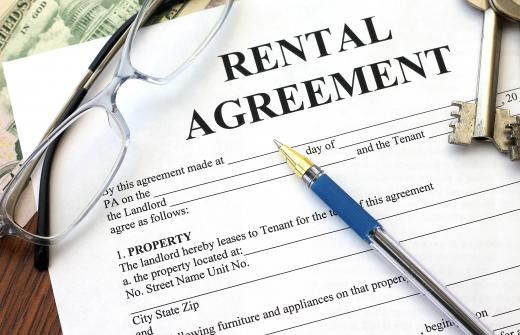An eviction complaint is a legal filing made against one party by another in order to attempt to legally evict the first party from property owned by the second party. The paperwork for this filing makes up the “complaint” and typically indicates the names of both parties and the physical address from which one party is trying to evict the other. It will also indicate the reason for the eviction, often due to unpaid rent or a violation of the rental agreement or lease, and may request financial damages be awarded in addition to the eviction. An eviction complaint must typically be filed by someone looking to evict a person, and will usually result in a court hearing to decide on the eviction.
When someone wishes to legally evict a person from property he or she owns, then that person must file an eviction complaint against the other person. In this type of situation the person who is requesting the eviction is the plaintiff in the case and the party that he or she is trying to evict is the defendant. There typically are some procedures that must be followed before a person can legally file an eviction complaint, such as a set period of time that has passed that gave the person time to pay late rent; usually, a prior notice must have been given to the defendant of an intent to evict him or her as well.

As long as these procedures are followed properly and the defendant does not pay rent owed to the plaintiff or otherwise resolve the situation, then the plaintiff can then file an eviction complaint. This is a legal document, and while it does not need to be drawn up with the help of an attorney, legal counsel can make the process easier. The eviction complaint typically will indicate the plaintiff and defendant, the property in question, and the reason for the complaint.

Once an eviction complaint is filed, then the court will set up a time for the hearing that will decide on the eviction. This is typically within two to three weeks of the complaint being filed, and the defendant will be notified by the court about the specific date. A plaintiff may also have to notify the defendant about the court date, though this typically depends on the region or country in which the eviction complaint is filed.

A defendant can come to the court hearing and present a defense against the eviction, such as showing that rent has been paid or demonstrating that the lease was not violated. If the defendant does not show up to object to the eviction, or he or she fails to prove the defense, then the court will typically rule in favor of the plaintiff and order the eviction be carried out. This eviction can occur as quickly as 72 hours after the ruling.
